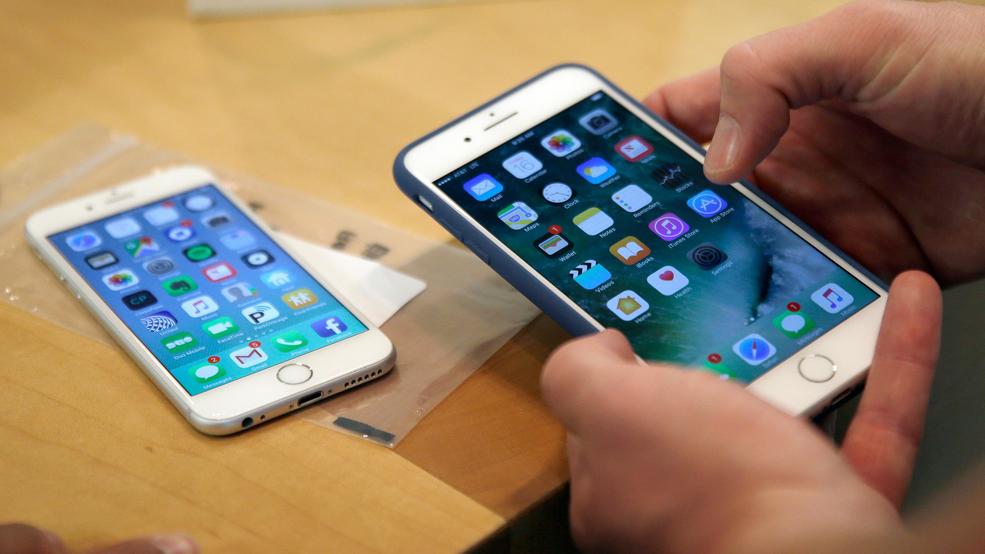
Have you ever noticed that after a year or so, it feels like your iPhone is just a bit … slower? (Generally around the time the newest model releases?)
You might not have downloaded any new apps or even been using your phone significantly more, but everything feels more sluggish. It’s an anecdotal story that you’ve likely experienced or heard others complaining about over the years. But it seems it really is happening, and it’s happening on purpose.
Apple confirmed investigations into the health of its iPhones as they age today, Dec. 20. A discussion on Reddit about iPhones seemingly speeding up after their batteries had been replaced led John Poole, the founder of Geekbench, a computer-monitoring software company, to research whether there was any truth in the claim. Poole found that Apple does seem to downgrade the performance of its iPhones’ processors (or CPUs) after their batteries hit a certain number of recharge cycles. This is seemingly because of an issue that Apple has had in the past with iPhone batteries that have caused the phones to unexpectedly shut down when they said they still had battery life. Apple offered trade-ins for some models of the iPhone 6s, but there have been rumblings that it has affected other models, and, as Poole’s research shows, the same processor performance degrading happened for him on the iPhone 7 as it did on the 6s.
Apple released the following statement:
Our goal is to deliver the best experience for customers, which includes overall performance and prolonging the life of their devices. Lithium-ion batteries become less capable of supplying peak current demands when in cold conditions, have a low battery charge or as they age over time, which can result in the device unexpectedly shutting down to protect its electronic components.
Last year we released a feature for iPhone 6, iPhone 6s and iPhone SE to smooth out the instantaneous peaks only when needed to prevent the device from unexpectedly shutting down during these conditions. We’ve now extended that feature to iPhone 7 with iOS 11.2, and plan to add support for other products in the future.
Apple basically suggests, unsurprisingly, that it’s introduced this feature as a benefit for its customers, as it prolongs the longevity of the batteries in their iPhones, even though this essentially means they’ll be using a slowed-down phone.
While Apple may be suggesting that it’s degrading the processing power of its phones so that they last longer, there’s no simple way to get out of that situation. You’re either buying a new battery or buying a new phone. And there’s never been any indication on an iPhone’s software that it’s slowing down your phone to protect its battery, and no way of opting out of that decision.
